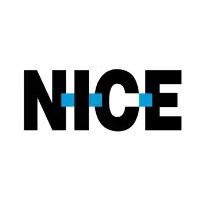There's a lot of chatter this week around the Netflix/Quikster dissolution. I'm not sure if it would have been such a big deal to Netflix subscribers (and the media) if it hadn't come on the heels of their recent, controversial price hike. It got me thinking about customer trust - and the role it plays in maintaining your customers when bad things happen.
According to Gartner, "75% of customers that defect to a competitor claim they had been satisfied with the previous organization." So, not only do you have to work hard to keep your unhappy customers, you also need to work almost as hard to maintain the happy ones. The key there is often building trust.
According to the 2010 Edelman Trust Barometer, honesty and trust are more important to customers than the quality of the product or service. In fact, the following statistics from the report paint a picture of the importance of trust:
- 77% of people will not buy products or services from a company they do not trust
- 91% of people would buy a product from a company they trusted
- 55% would pay a premium for products or services when trust is present
- 72% are willing to share the reasons why they don't trust a company with people they don't know
Think for a moment of your all-time favorite product or service. What would it take for you to give up that product and move to a competitor? Probably quite a lot. What about if something went horribly wrong with that product? It turns out that when a company is trusted, there's a bigger chance that not only will their customers stick with them, they will come to their defense. Here's how the Edelman Trust Barometer illustrated that point:
| When a company is distrusted | When a company is trusted |
| 57% will believe negative information after hearing it 1-2 times | 51% will believe positive information after hearing it 1-2 times |
| 15% will believe positive information after hearing it 1-2 times | 25% will believe negative information after hearing it 1-2 times |
A great example of customer loyalty as a result of trust is the example of New Coke. I think we can all agree that it was one of the biggest product failures of all time. Coca-Cola removed a hugely successful product from store shelves and replaced it with one that tested to taste more like their key competitor. The nation revolted. My grandma was a loyal Coke drinker at the time, and went through 70 days of mourning Coke's loss. When Coke Classic came back out, she bought enough to make it through the rest of the decade.
Time will tell what impact, if any, the recent news from Netflix will have on the company overall, but these examples do teach a lesson - put a premium on building customer trust.




